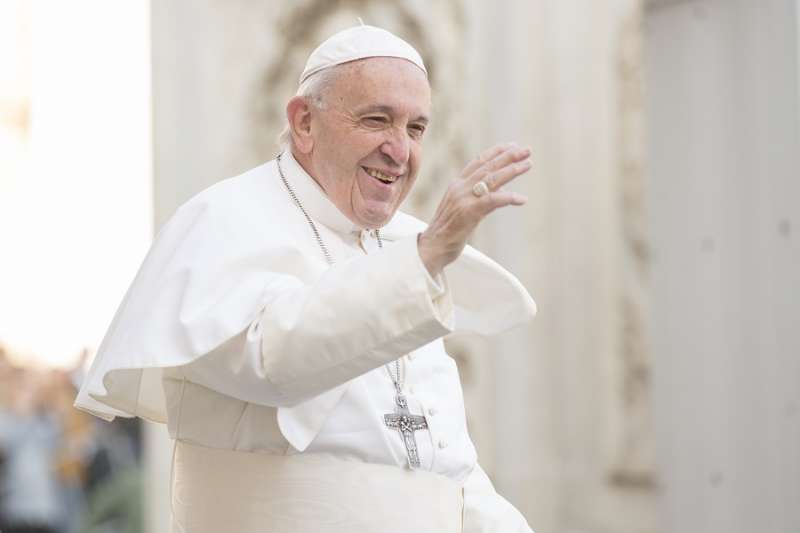By reflecting on the Ten Commandments, Christians can examine their hearts to see where disordered attachments and desires have made them in need of Christ’s healing, Pope Francis said Wednesday.
“The Decalogue is [Christ’s] ‘x-ray,’ it is described as a photographic negative that lets his face appear – as in the Holy Shroud [of Turin].”
“Here is what the Decalogue is for us Christians: to contemplate Christ in order to open us to receive his heart, to receive his desires, to receive his Holy Spirit,” the pope said Nov. 28.
At the final general audience of the Church’s liturgical year, which begins its “new year,” on the first Sunday of Advent, Pope Francis concluded his year-long teachings on the Ten Commandments. With the start of the Advent season, he will begin a new topic of catechesis.
Reflecting on God’s commandments, Pope Francis spoke about desires, and the freedom which comes from acknowledging when desires are disordered, opening one’s self to receive instead the good desires God wishes to give his children.
God invites his children to obey his commandments, the pope explained, in order to release themselves “from the deception of idolatries,” which only empty and enslave.
“It is evil desires that ruin man,” he noted. “The Spirit lays down in our hearts his holy desires, which are the seed of new life.”
Francis explained that a part of finding freedom from worldly attachments is first accepting one’s past, then, in order to live “in the beauty of fidelity, generosity and authenticity – we need a new heart, inhabited by the Holy Spirit.”
How can a Christian receive such a heart “transplant?” he asked. Through contemplation of Christ and his commandments: “Looking at Christ we see beauty, goodness and truth. And the Spirit generates a life which, following these desires, triggers hope, faith and love in us.”
The pope pointed out that the apparent “negativity” expressed in the commandments – “do not steal,” “do not kill” – in Jesus become positive commands to love, to make room for others in the heart. “This is the fullness of the law that Jesus came to bring us,” he said.
“Thus, we discover better what it means that the Lord Jesus did not come to abolish the law but to fulfill it,” he said.
“And while the law according to the flesh was a series of prescriptions and prohibitions, according to the Spirit this same law becomes life,” he said, “because it is no longer a norm but the very flesh of Christ, who loves us, seeks us, forgives us, comforts us and in his Body reconciles communion with the Father, lost for the disobedience of sin.”

